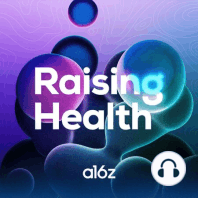38 min listen
Journal Club: Turning a Toxin into a Genome Editing Tool
FromRaising Health
ratings:
Length:
21 minutes
Released:
Oct 8, 2020
Format:
Podcast episode
Description
Over the past 15 years we have made huge advances in our ability to engineer the genome, meaning that we now have the ability to edit DNA in a programmable and precise manner. In the lab, these editing tools allow us to create models of disease and to investigate how changes in the genome lead to changes in cell and organismal biology. And excitingly, these genome editing technologies are now entering clinical trials to treat, and possibly cure, diseases like sickle cell anemia. But there is a component of the human genome which even the much lauded and powerful CRISPR system has not been able to touch: the mitochondrial DNA. The mitochondria are the powerhouses of the cell and contain their own, much smaller, genomes which encode several essential proteins and RNAs. Mutations in the mitochondrial genome are the cause of over 150 diseases, but to date, fixing these mutations with gene editing and gene therapy has been off the table due to the inaccessibility of this genome. In this episode of Journal Club, a16z general partner Jorge Conde and bio deal team partner, Andy Tran – experts in genomics and genome engineering – join Lauren Richardson to discuss groundbreaking research creating the first genome editor able to target the mitochondrial DNA: "A bacterial cytidine deaminase toxin enables CRISPR-free mitochondrial base editing" by Beverly Y. Mok Marcos H. de Moraes, Jun Zeng, Dustin E. Bosch, Anna V. Kotrys, Aditya Raguram, FoSheng Hsu, Matthew C. Radey, S. Brook Peterson, Vamsi K. Mootha, Joseph D. Mougous & David R. Liu, published in Nature. We discuss what makes the mitochondrial genome distinct, how this new tool – which was derived from a bacterial toxin – was engineered for both safety and specificity, and the important applications for this new editor.
Released:
Oct 8, 2020
Format:
Podcast episode
Titles in the series (100)
The Story of Schizophrenia: Descriptions of the mental illness we today call schizophrenia are as old as humankind itself. And more than likely, we are are all familiar with this disease in some way, as it touches 1% of us—millions of lives—and of course, their families. In this episode, we dive into the remarkable story of one such American family, the Galvins: Mimi, Don, and their 12 children, 6 of whom were afflicted with schizophrenia. In his book, Hidden Valley Road: Inside the Mind of an American Family, Robert Kolker follows the Galvins from the 1950s to today—through, he writes, “the eras of institutionalization and shock therapy, the debates between psycho-therapy versus medication, the needle-in-a-haystack search for genetic markers for the disease, and the profound disagreements about the cause and origin of the illness itself.” Because of that, this is really more than just a portrait of one family; it’s a portrait of how we have struggled over the last decades to understa by Raising Health
